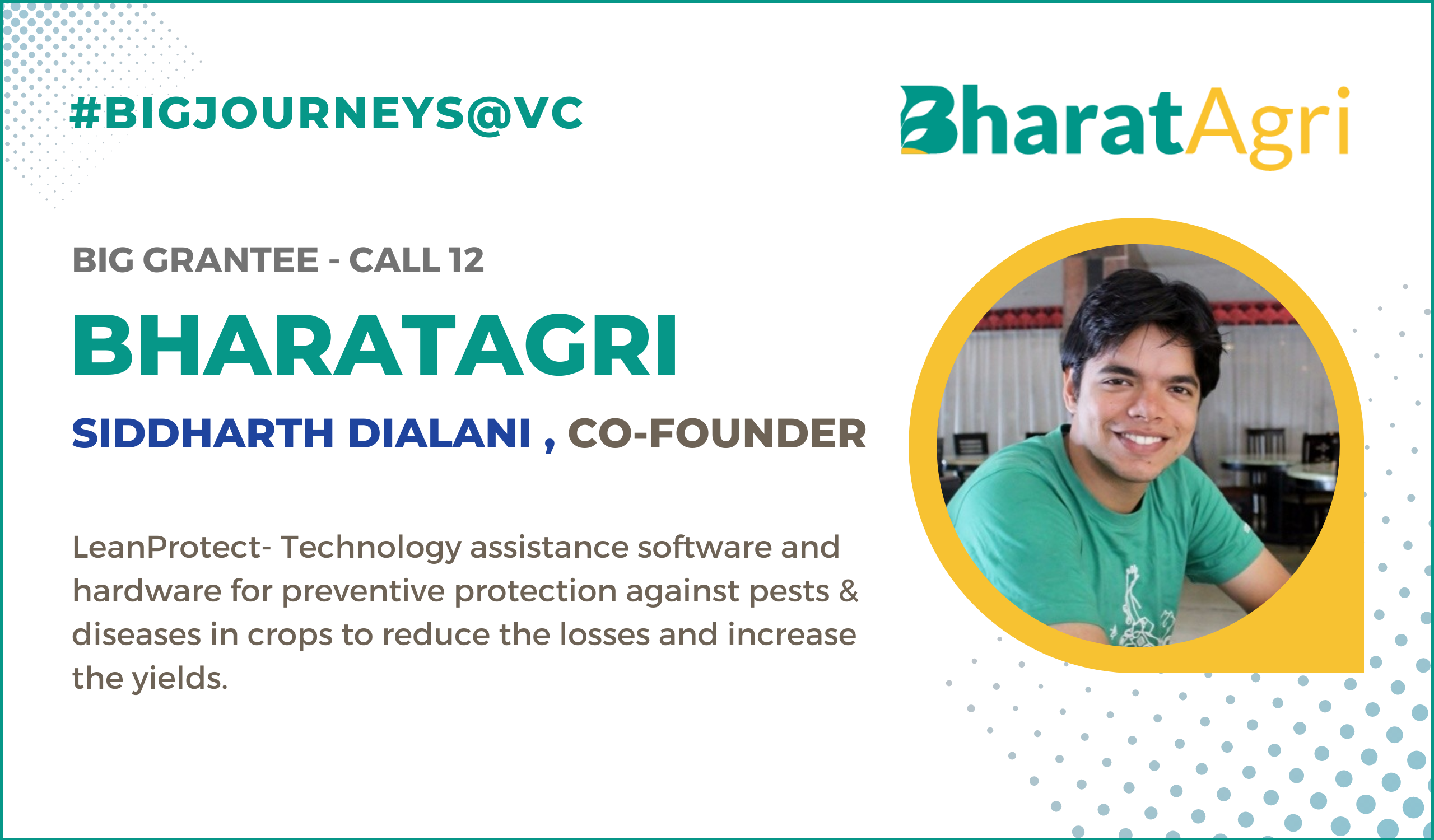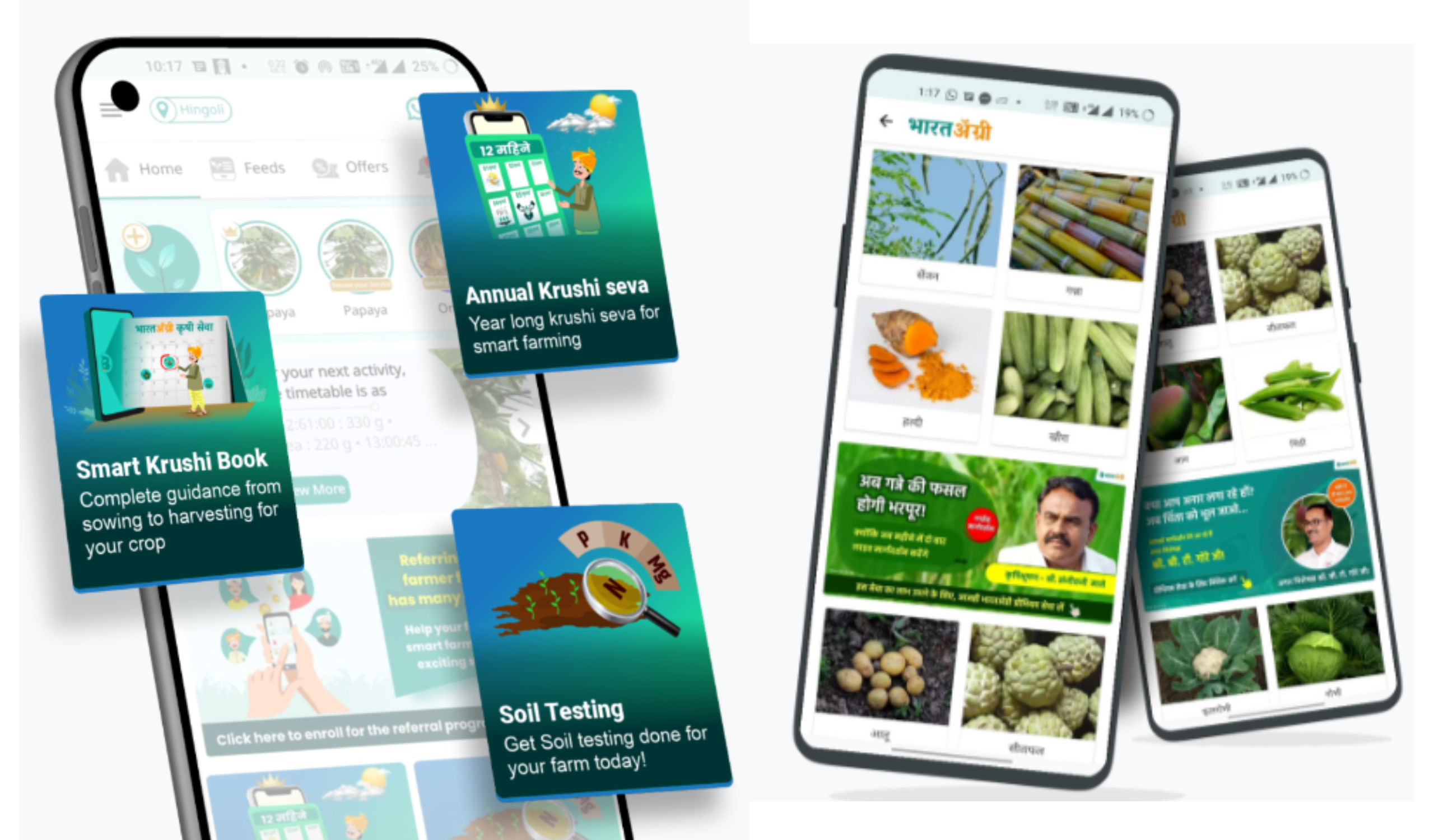In conversation with Siddharth Dialani, Co-Founder of BharatAgri
(January 2023)
Interviewed by N. Ramakrishnan

Siddharth Dialani and Sai Gole, both alumni of IIT Madras, were keen to do something in agriculture, considering the enormous problems the sector faces and the huge opportunities it presented for technology to play a bigger role in predicting issues, improving productivity and quality, and having a more systematic approach to farming. Dialani says the trigger for doing something in agriculture came when Sai Gole, whose family had a farm near Nagpur in Maharashtra, used to tell him about the problems her family faced. The two decided to learn more about agriculture if they were to attempt to solve the problems in the sector.
After graduation, Dialani says he moved to Israel, lived on a farm and learnt how farming was done in the country. It was there that he learnt that farming was a systems-based approach with a set of analytical tools helping in doing whatever needed to be done on the farm at the given time. The farmers merely executed the directions as per the analytical tools. Why not attempt something similar in India, was Dialani’s thinking. “I realise that this is what we need in India. That the system should take the decisions and the farmers should only implement them,” he says. On his return to India, he got associated with ICRISAT (International Crops Research Institute for the Semi-Arid Tropics) in Hyderabad, where they did research on what needs to be done for India. It was while doing this research that they applied for and got funding under BIG (Biotechnology Ignition Grant), which helped them complete R&D on their product. According to him, the aim of the research was to collect data from farms based on which an algorithm will prepare a calendar for the farmer. The calendar is a step-by-step guide on what needs to be done on the farm and when. The algorithm had a module that would help in predicting pest attack and diseases, both of which depended to a large extent on the weather. The disease prediction module was funded by the BIG, according to him.
Dialani and Gole, both 29 years old, founded BharatAgri – the company is known as LeanCrop Technology Solutions Pvt. Ltd. – in 2017. They got the BIG funding in 2019 and they were able to complete the research work thanks to the grant. Dialani is a B.Tech and M.Tech in biotechnology and Gole a B.Tech and M.Tech in engineering design. Since the company was initially based in Pune, they were aware of technology incubator Venture Center. It was with Venture Center’s help that they applied for funding under BIG, says Dialani. Venture Center helped them, he adds, with the entire process, right from filling up the application, preparing the experiment document, getting ready for interviews and in finalising the financial statement. “They were with us the entire two years (of BIG). Every milestone, they would spend two-three days with us and tell us how to submit the milestone document. It would not have been possible without Venture Center,” says Dialani, Co-founder and CEO, BharatAgri.
He says that a lot of founders are not aware of the BIG scheme. They should look out for places like Venture Center as it is extremely difficult to go through the process without the assistance of someone like Venture Center. The Pune-based deep tech incubator Venture Center is one of the partners managing the BIG Scheme, which is a flagship program of BIRAC (Biotechnology Industry Research Assistance Council), a public sector enterprise set up by the Department of Biotechnology of the Government of India. The scheme is the largest early-stage biotech funding program in the country and provides grant up to ₹50 lakhs over an 18-month period based on milestones being achieved. The BIG Scheme aims to encourage more start-ups in the biotech space, helping them upscale and validate proof of concept.

According to Dialani, they launched their product in 2018 and the first few farmers they got on board were entirely thanks to their efforts. Since he and Gole were on the field, farmers saw them using the app for various purposes and a few of them were convinced and became customers. The BharatAgri app is available on Google Playstore and more than 40 lakh farmers have downloaded the app. “We provide the calendar to them for a fee. More than one lakh farmers have purchased the calendar,” says Dialani and adds that the pest and disease prediction module is the most popular one in the app. The largest customer base for the BharatAgri app is in Maharashtra, Madhya Pradesh and Uttar Pradesh, according to Dialani. The company raised a $2 million pre-Series A round in October 2020 from investors such as 021 Capital and India Quotient and a $6.5 million Series A round in September 2021 from Omnivore, India Quotient and others. BharatAgri’s proprietary algorithm collects data on more than 30 parameters to provide customised advisory on multiple crops through the year.
![]()
